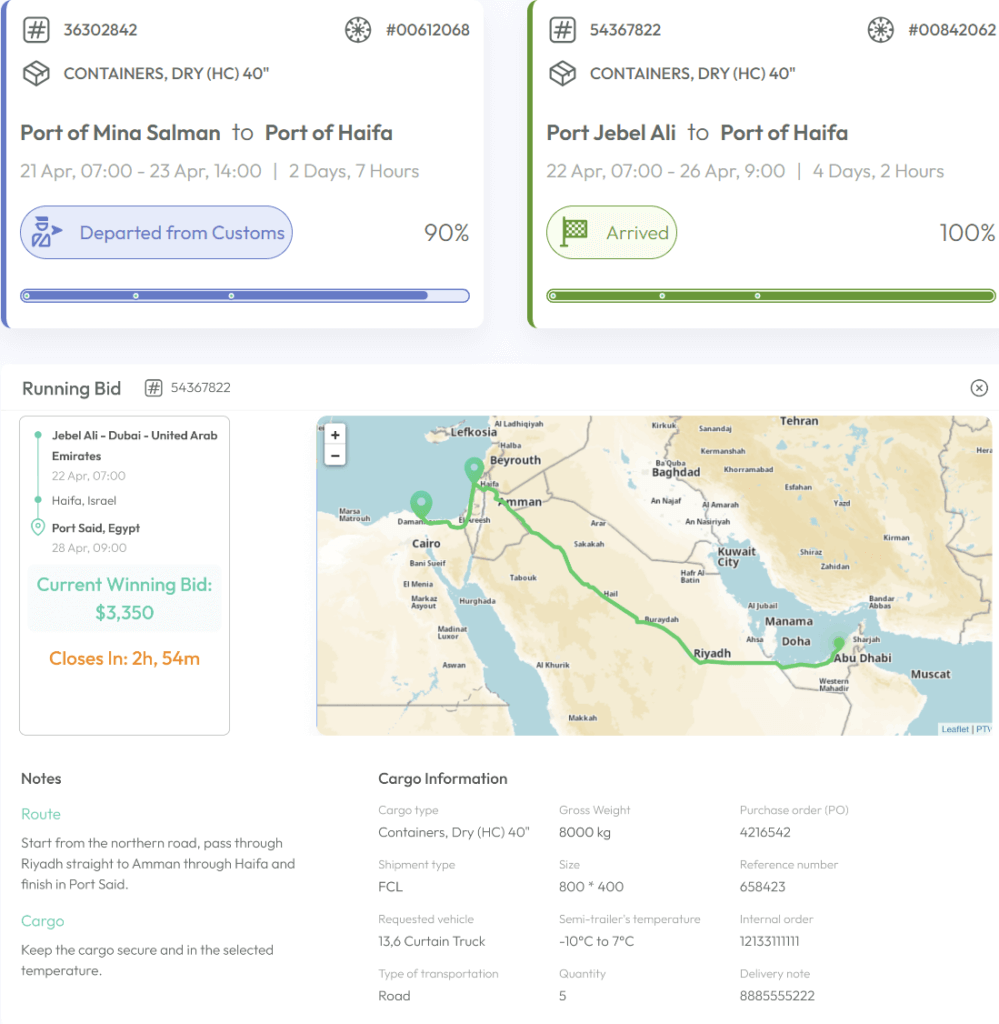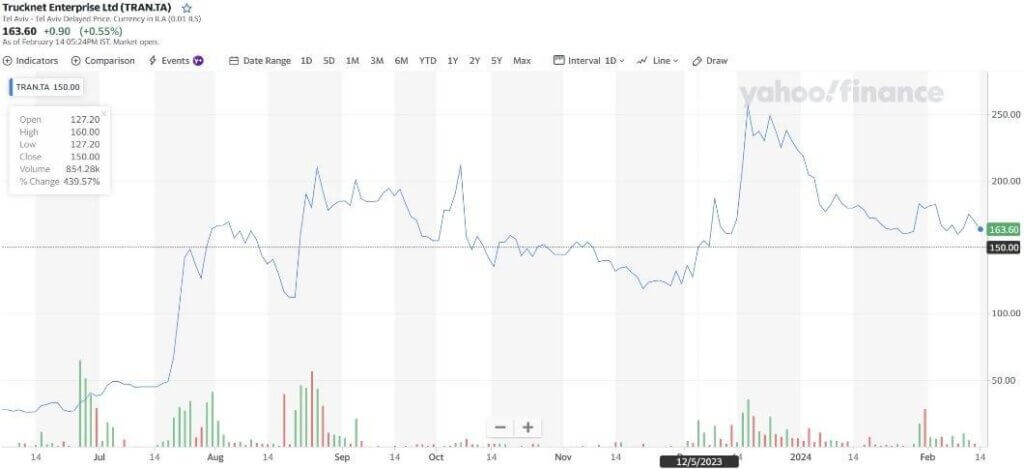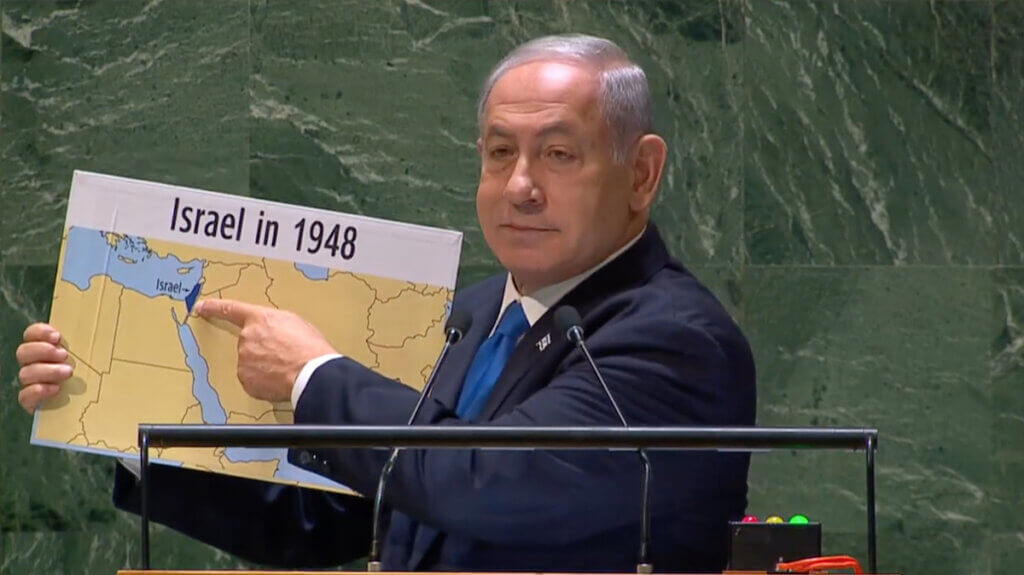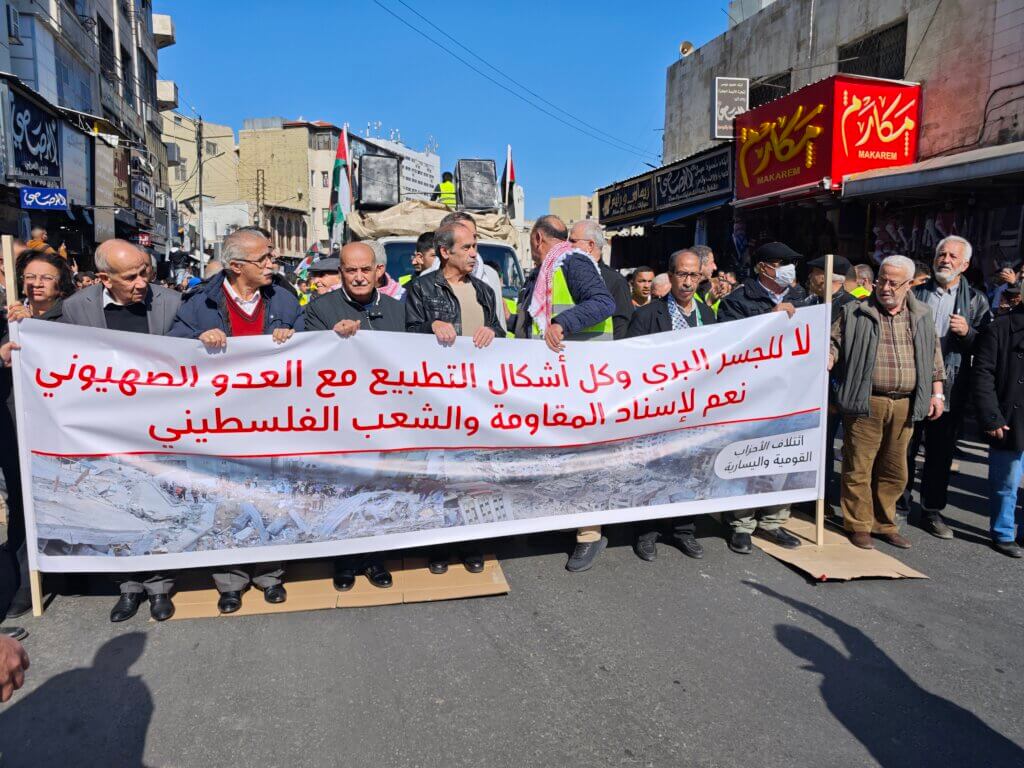Since the beginning of its genocidal war on Gaza, Israel’s supply lines have been jeopardized. After Israel closed all its borders to imports headed to Gaza and struck the Rafah crossing to put it out of order, Hamas attacked the ports of Ashkelon and Ashdod, which were used to import oil and supplies used in the war machine, after which Israel had to halt port operations and shift ships to Eilat.
As the genocide in Gaza continued unabated, Yemen took part in the war by blockading Eilat’s port, which forced Israel to relocate its supply lines to the port of Haifa on the Mediterranean Sea. Last month, Iraq announced an additional blockade on Israel in the Mediterranean, expected to be enforced in February if the ongoing rounds of negotiations between Israel and Hamas to end the war fail. Activists in Jordan are also calling for a land blockade on the border with Israel.
These blockades against Israel are causing consumer prices and business costs to go up in the country, deteriorating the trust in the Israeli economy and its financial markets. Amid this chaos, a not-so-successful Israeli company, Trucknet, has alleged that it has established a “land bridge” connecting the Gulf to Israel through Jordan, offering Israel the lifeline it desperately needs to navigate the negative impacts of the maritime blockades today and in the future.
This claim was quickly picked up by the “Axis of Resistance” media groups, followed by widespread criticism on social media accusing the UAE and Saudi Arabia of complicity in the war on Gaza and demanding the curtailment of “the land bridge.”
Yet a cursory investigation of the companies supposedly responsible for facilitating this “land bridge” calls into question whether it actually exists in the first place. Despite Israeli claims, there is very little evidence to show that there is an effective “land bridge” between Israel, Jordan, and the Gulf. Still, the reasons for the persistence of these claims have more to do with Israel’s desire to promote its postwar normalization with the region in the long run, while calming investors and consumers in Israel in the short term and forestalling an Israeli economic crash. Furthermore, Israel is using this claim to undermine the Palestinian position in the ongoing negotiations over the conclusion of the genocidal war.
Between Trucknet and Puretrans
The story of the alleged land bridge originates with a failing Israeli tech company called Trucknet, which provides a digital platform to optimize shipments — in other words, a data company, not a shipping company. On December 5, 2023, the company issued a press release reporting an agreement in principle for cooperation with a UAE-based company called Puretrans, allegedly working in cooperation with Dubai Ports and specializing in logistics, freight, and transportation brokerage.

As part of the agreement, both companies have ostensibly “agreed” to cooperate so that cargo shippers and transport service providers can use the Trucknet platform to optimize transportation between the ports of Dubai and Haifa. This will include the automation of cargo transportation and provide real-time tracking of trucks, CO2 emissions, and the status of shipments. But the company’s claims don’t add up.
Several details emerge upon investigating Trucknet’s original Hebrew press release and the circumstances surrounding Puretrans, Trucknet’s alleged UAE partner, which show that these companies are not engaged in any shipping.* What’s more, no commercial activities exist for a UAE company under the name of Puretrans.
In addition, it seems that Trucknet is involved in the financial manipulation of its stock, which appears to be a motivator for making the claim. A day before the announcement, the company’s stock price was 127 NIS. By December 18, the price had doubled, reaching 256 NIS. The price has since returned to the pre-announcement price range, at 159 NIS. If the company is generating additional revenues due to increased business activity as a result of the land bridge, the price of the stock would not have plummeted so severely. Instead, the price would have increased to reflect the new financial gains.

In other words, it appears that the claims about the company’s activities are fictitious. But despite the lack of firm evidence of the existence of a land bridge, the story has been widely shared by pro-Palestine activists as evidence of UAE complicity in the war by offering Israel a lifeline as it struggles to use the Red Sea to import necessary items from Asia. The UAE made no comments in response to these allegations. Jordanian public officials have denied the existence of such a land bridge, yet did not deny the existence of some trade between Jordan and Israel, as per prior economic and political agreements. Despite the slim evidence, the wide reaction to the inaccurate news has captured the attention of Israeli public officials.
An embattled Israeli government and the invention of Puretrans
The Israeli Minister of Transportation, Miri Regev, has sought to capitalize on the panic of the pro-Palestine activists to legitimize her government further as it is increasingly accused of damaging the Israeli economy, desiring to undermine the psychological effectiveness of the Yemen blockade on the Red Sea. On January 22, 2024, Regev posted on X claiming a team to enable the overland transportation of goods from Abu Dhabi to Israel had been established. On February 13, she published another post during a visit to India showing the alleged shipping docks for the goods shipped to Israel through the alleged land bridge.
What Regev failed to mention is that the Yemen blockade on Israel already covers the Arabian Sea, which means any ship destined for Israel from India, even before it uses the presumed land bridge, will be struck as if it were passing through the Red Sea. A ship destined for India was already struck earlier this month by the Yemeni Armed Forces, demonstrating their ability to prevent any land bridge India may support through ships to the UAE.
Prior to the minister’s expression of intentions about formalizing the land bridge, there was no evidence of the existence of a UAE company called Puretrans. A company website was created under the domain “puretrans.ae.” The contact page on the site lists “puretrans@alphoenixgroup.com” as a company email. The mother company’s website shows it was created in Tel Aviv. The website claims the company offers “electric shipping” across the Middle East, even though the relevant technologies do not exist yet, and no supporting evidence was provided to show the electric ships or vehicles allegedly used in this futuristic process.
Additionally, another company associated with the group, Puretech, was also created in Israel, whose founder, Abdo Qassem, is an Israeli citizen based in Haifa. His associate, Nadine Rohana, is also an Israeli.
Taken together, the available information on Puretrans would indicate that Israel has invented a fake company in the UAE while manufacturing a narrative based on deliberately inaccurate information to create a false impression that such a land bridge is not only a possibility but also already in existence.
That said, there might be some low-volume truck movement for testing a future prospective land bridge, but such traffic would not even constitute a pilot program, let alone a vaunted land bridge.
The theoretical merits of the ‘land bridge’
Most people think the idea of the land bridge is a result of this war. It is not. It is actually part of the India-Middle East-Europe Economic Corridors (IMEC), which were announced last year by the U.S. and its allies during the G20 meeting in September. The IMEC are planned economic corridors that aim to bolster the partners’ economic development by fostering connectivity and economic integration through railways, clean energy, and data pipelines among Asia, the Persian Gulf, and Europe. Specifically, it is supposed to connect Greece to India through a land bridge that crosses the UAE, Saudi Arabia, Jordan, and Israel, with the ports of Dubai and Haifa operating as maritime shipping hubs. The vision for IMEC was used by Israeli PM Benjamin Netanyahu during his speech at the UN in September 2023, which he represented visually as the map of “a new Middle East” from which Palestine would be erased.

This is the real land bridge, and it doesn’t exist yet. The projected bridge is not supposed to be roads-based, but railway-reliant. The IMEC thus far isn’t even a formal agreement, but an expression of intention, which was supposed to be followed by deliberations to take place within 60 days following the September G20 meeting. But October 7 threw a wrench in the talks, which is to say, the land bridge as of yet remains an idea.
Jordan and the prospects of a land blockade
Online videos showing trucks coming to Israel from Jordan are not actually linked to the alleged land bridge with the Gulf. Rather, this has been taking place due to preexisting peace agreements dating back to 1994. In 2021, trade between Jordan and Israel amounted to $430 million, according to the Observatory of Economic Complexity, and included displays, cars, petrochemical products, foodstuffs, agricultural products, and energy supplies. Given the maritime blockade, this trade activity may have increased in volume, leading to the perception of a new, qualitatively different “land bridge.” Still, this movement in trade has already existed for decades, and even an increased volume in trade with Jordan cannot offset the losses from the maritime blockade.
As per the agreement, Jordan is not legally allowed to ban exports from Jordan to Israel or otherwise risk breaking the peace treaty and becoming a party to the current and future wars with Israel. Despite the state’s official stance, many Jordanians took to the streets to demand stopping the supplies to Israel and cutting trade. This is not a new phenomenon in Jordan. Previously, Jordanians protested gas supplies from Israel and demanded their curtailment. The protests this time, however, are motivated by the desire to undermine Israel’s ability to carry on its genocide in Gaza. Jordanians perceive current trade as complicity in the war.
As Jordanian protestors’ demands for a land blockade grow in pursuit of disrupting Israel’s war machine, Israel is not only actively promoting the idea of a land bridge from the same borders, but is pretending that it already exists. The question remains, why is Israel so invested in maintaining the charade?
The answer lies in Israel’s campaign of psychological warfare, which is not only waged against the Palestinian people but also its own citizens in order to raise morale and bolster the war effort. The maritime blockade is currently exacting a heavy economic cost through inflationary pressures, which in turn has intimidated businesses, curtailed investments, and changed consumers’ spending patterns. This precarious situation can easily spiral into an economic crisis as prices continue to skyrocket and Israel’s supply chains remain unreliable. Amidst the panic, Israel might witness investor flight, and civil unrest could follow, which is already exacerbated by the deep political rift in Israeli society with respect to the current Netanyahu government.
In such a scenario, even a fake story about a land bridge might help calm Israeli consumers and businesses in the hopes of altering their behavior. What this means, in essence, is that the so-called “land bridge” is an Israeli PSYOP aimed at preventing an economic and financial crash, which can easily become a self-fulfilling prophecy.
The far bigger problem is not the land bridge, but the already existing trade agreement with Jordan. While Israel has used the land bridge story as a means of bolstering its own economy and promoting the prospects for an actual land corridor in the future, the key chokepoint in such a prospective corridor is Jordan. Jordan has a critical mass of Palestinian citizens, and yet it is the only country through which such a corridor can feasibly pass. Pro-Palestine activists in Jordan should therefore focus their efforts on severing Jordan’s longstanding trade agreement with Israel, which might frustrate any potential economic corridor in the future while turning the screws on Israel in the present as it continues in its genocidal war.
Notes
* First, upon analyzing the original press release in Hebrew, it is clear that Trucknet itself is not involved in any shipping except through tracking of certain indicators and offering data. Second, there is no need for trucks destined for Israel to reach Haifa port. A link to Haifa port means the cargo will be destined for export, not local consumption, and the alleged land bridge is meant to offset the maritime blockade on consumer goods. Hence, the claim is illogical, as trucks will unload sooner before reaching Haifa in the west of the country, even if there were such a bridge. Third, at the time of the press release, Puretrans, the alleged UAE partner, had no presence online.


